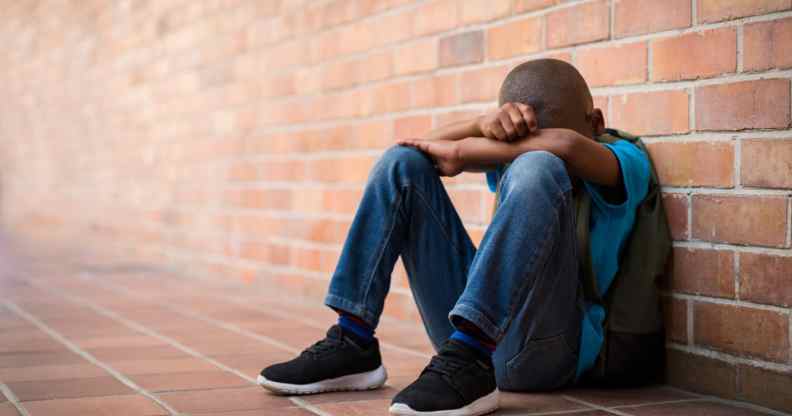Black LGBT+ youth hit hardest by COVID-19 mental health crisis, reveals devastating study

Browbeaten by the pandemic, Black LGBT+ youth have faced increased mental health struggles. (Stock photograph via Elements Envato)
The mental health toll of the coronavirus pandemic has devastated young LGBT+ Black Britons, a shocking study has revealed.
As the coronavirus pandemic continues, the psychological fallout of lockdown orders and isolation has run deep, mental health experts warn.
While queer youth are twice as likely to be worried about their mental health than non-LGBT+ peers, young Black LGBT+ folk in particular have seen their mental health worsen, according to a study by LGBT+ youth charity Just Like Us reported by HuffPost.
More than two-thirds (61 per cent) of Black queer youth worry on a daily basis, a sizeable jump from the 51 per cent of white queer people who felt the same.
Black LGBT+ youth are also more likely to experience depression, anxiety disorder, panic attacks and alcohol and drug dependence.
With young people’s social lives restricted and schools sporadically shuttered, tensions have flared up at home for many. Among Black queer youth surveyed, 29 per cent of reported troubling conditions at home ,compared to a quarter of white LGBT+ youth.
Mental health crisis gripping Black queer youth is ‘devastating, says Just Like Us chief
Just Like Us surveyed 2,934 secondary school pupils, including 1,140 LGBT+ young people, aged between 11 and 18 from December 2020 to January 2021.
The results of the survey were “devastating” and signalled the growing urgency that educators and healthcare providers do more for young Black queer people.
“It’s devastating to see that Black LGBT+ young people have been particularly impacted by the pandemic,” explained Just Like Us chief executive Dominic Arnall in a statement to HuffPost.
Arnall has been alarmed by this and other research, describing the pandemic as the “biggest risk to the mental health of LGBT+ young people since Section 28“.
“There needs to be much more awareness around the issues that Black LGBT+ young people are facing, and an intersectional approach needs to be taken to inclusive education in schools and mental health care for young people,” he added.
“It’s so important that if you are celebrating LGBT+ History month or School Diversity Week, make sure you include a diverse range of LGBT+ people including Black LGBT+ people and engage with organisations that do specific work in this area.”
Readers affected by the issues raised in this story are encouraged to contact Samaritans free on 116 123 (www.samaritans.org) or Mind on 0300 123 3393 (www.mind.org.uk).
Readers in the US are encouraged to contact the National Suicide Prevention Line on 1-800-273-8255.

